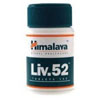 | Strattera (Atomoxétine) Active Ingredient: Atomoxetine Strattera is used for treating attention-deficit/hyperactivity disorder (ADHD). Other names for this medication: Atomoxetin, Atomoxetina, Atomoxétine, Atomoxetinum, Deaten, Recit, Suev, Tomoxetina, Tomoxetine, Tomoxetinum Show all |
INDICATIONS
Strattera is used for treating attention-deficit/hyperactivity disorder (ADHD). Strattera is a selective norepinephrine reuptake inhibitor (SNRI). Exactly how Strattera works to treat ADHD is not known. Strattera increases certain chemicals (eg, norepinephrine) in the brain. This may affect attention span and behavior.
INSTRUCTIONS
Use Strattera as directed by your doctor.
- Take Strattera by mouth with or without food. If stomach upset occurs, take with food to reduce stomach irritation.
- Swallow Strattera whole. Do not crush, chew, or open the capsules.
- Taking Strattera at the same time each day will help you remember to take it.
- Continue to take Strattera even if you feel well. Do not miss any dose.
- If you miss a dose of Strattera, take it as soon as possible. If it is almost time for your next dose, skip the missed dose and go back to your regular dosing schedule. Do not take 2 doses at once.
Ask your health care provider any questions you may have about how to use Strattera.
STORAGE
Store Strattera at 77 degrees F (25 degrees C). Brief storage at temperatures between 59 and 86 degrees F (15 and 30 degrees C) is permitted. Store away from heat, moisture, and light. Do not store in the bathroom. Keep Strattera out of the reach of children and away from pets.
MORE INFO:Active Ingredient: Atomoxetine HCl.
Do NOT use Strattera if:
- you are allergic to any ingredient in Strattera
- you are taking or have taken a monoamine oxidase inhibitor (MAOI) (eg, phenelzine) within the last 14 days
- you have certain heart problems (eg, heart defect, heart failure), certain types of irregular heartbeat, severe blood vessel problems, or narrow-angle glaucoma.
Contact your doctor or health care provider right away if any of these apply to you.
Some medical conditions may interact with Strattera. Tell your doctor or pharmacist if you have any medical conditions, especially if any of the following apply to you:
- if you are pregnant, planning to become pregnant, or are breast-feeding
- if you are taking any prescription or nonprescription medicine, herbal preparation, or dietary supplement
- if you have allergies to medicines, foods, or other substances
- if you have a personal or family history of heart problems (eg, heart failure, irregular heartbeat), or a family history of sudden death
- if you have a personal or family history of mood or mental problems (eg, agitation, anxiety, bipolar disorder, depression, psychosis, tension), abnormal thoughts, hallucinations, suicidal thoughts or attempts, or alcohol or other substance abuse or dependence
- if you have brain or heart blood vessel problems, liver problems, high or low blood pressure, trouble urinating, or Raynaud syndrome.
Some medicines may interact with Strattera. Tell your health care provider if you are taking any other medicines, especially any of the following:
- MAOIs (eg, phenelzine) because severe and sometimes fatal side effects, including severe high blood pressure, high fever, muscle problems, severe agitation, and coma, may occur
- Quinidine or selective serotonin reuptake inhibitors (SSRIs) (eg, fluoxetine, paroxetine) because they may increase the risk of Strattera's side effects
- Albuterol because the risk of its side effects may be increased by Strattera.
This may not be a complete list of all interactions that may occur. Ask your health care provider if Strattera may interact with other medicines that you take. Check with your health care provider before you start, stop, or change the dose of any medicine.
Important safety information:
- Strattera may cause dizziness, drowsiness, lightheadedness, or fainting. These effects may be worse if you take it with alcohol or certain medicines. Use Strattera with caution. Do not drive or perform other possible unsafe tasks until you know how you react to it.
- Strattera may cause dizziness, lightheadedness, or fainting; alcohol, hot weather, exercise, or fever may increase these effects. To prevent them, sit up or stand slowly, especially in the morning. Sit or lie down at the first sign of any of these effects.
- Do not take more than the recommended dose or take for longer than prescribed without checking with your doctor.
- Children and teenagers who take Strattera may be at increased risk for suicidal thoughts or actions. Adults may also be affected. The risk may be greater in patients who have had suicidal thoughts or actions in the past. The risk may also be greater in patients who have had bipolar (manic-depressive) illness, or if their family members have had it. Watch patients who take Strattera closely especially during the first few months of taking Strattera and at times of dose changes. Contact the doctor at once if new, worsened, or sudden symptoms such as depressed mood; anxious, restless, or irritable behavior; panic attacks; or any unusual change in mood or behavior occur. Contact the doctor right away if any signs of suicidal thoughts or actions occur.
- Do not try to open the capsules or take them apart. If a capsule breaks, do not touch it. Wash your hands and any surfaces that touched a broken capsule. Do not get Strattera in your eye; it may irritate your eye if you do. If you get Strattera in your eyes or nose, rinse at once with cool water.
- Strattera may rarely cause a prolonged, painful erection. This could happen even when you are not having sex. If this is not treated right away, it could lead to permanent sexual problems such as impotence. Contact your doctor right away if this happens.
- Lab tests, including heart rate, blood pressure, and liver function, may be performed while you take Strattera. These tests may be used to monitor your condition or check for side effects. Be sure to keep all doctor and lab appointments.
- Use Strattera with caution in the elderly; they may be more sensitive to its effects, especially dizziness.
- Strattera may affect growth rate in children and teenagers in some cases. They may need regular growth checks while they take Strattera.
- Strattera should be used with extreme caution in children younger 6 years; safety and effectiveness in these children have not been confirmed.
- Pregnancy and breast-feeding: If you become pregnant, contact your doctor. You will need to discuss the benefits and risks of taking Strattera while you are pregnant. It is not known if Strattera is found in breast milk. If you are or will be breast-feeding while you take Strattera, check with your doctor. Discuss any possible risks to your baby.
All medicines may cause side effects, but many people have no, or minor, side effects.
Check with your doctor if any of these most common side effects persist or become bothersome:
Constipation; coughing; decreased appetite; dizziness; drowsiness; dry mouth; fatigue; flushing; headache; increased sweating; mild stomach pain or upset; nausea; tiredness; trouble sleeping; vomiting.
Seek medical attention right away if any of these severe side effects occur:Severe allergic reactions (rash; hives; itching; difficulty breathing; tightness in the chest; swelling of the mouth, face, lips, or tongue; unusual hoarseness); chest pain; dark urine; decreased sexual ability (eg, impotence, ejaculation problems); fainting; fast or irregular heartbeat; fever, chills, or sore throat; hallucinations; menstrual cycle changes; mental or mood changes (eg, agitation, anxiety, depression, irritability, persistent crying, unusual sadness); new or worsening behavior changes (eg, aggression, hostility, restlessness); numbness or tingling; one-sided weakness; pale stools; persistent fatigue or tiredness; prolonged or painful erection; seizure; severe or persistent headache or dizziness; severe or persistent trouble sleeping; stomach pain or tenderness; suicidal thoughts or attempts; trouble urinating; unusual vision or speech changes; unusually cold or blue fingers or toes; yellowing of the skin or eyes.
This is not a complete list of all side effects that may occur. If you have questions about side effects, contact your health care provider.
 BrahmiBrahmi is effective for aiding learning and memory improvement.as low as $38.48
BrahmiBrahmi is effective for aiding learning and memory improvement.as low as $38.48 DepakoteDepakote is used to treat various types of seizure disorders.as low as $0.83
DepakoteDepakote is used to treat various types of seizure disorders.as low as $0.83 Liv 52Liv.52 is a double strength hepatospecific formulation, designed for the treatment and management of liver disorders.as low as $36.38
Liv 52Liv.52 is a double strength hepatospecific formulation, designed for the treatment and management of liver disorders.as low as $36.38 ZyloprimZyloprim is used to treat gout and high uric acid levels in the blood or urine caused by certain types of cancer chemotherapy.as low as $0.35
ZyloprimZyloprim is used to treat gout and high uric acid levels in the blood or urine caused by certain types of cancer chemotherapy.as low as $0.35 SeptilinSeptilin is the ultimate natural alternative to antibiotics that is mostly preventive and is aimed at building up the body's own defence.as low as $38.58
SeptilinSeptilin is the ultimate natural alternative to antibiotics that is mostly preventive and is aimed at building up the body's own defence.as low as $38.58 DramamineDramamine is an antihistamine and anticholinergic. It works in the brain to decrease nausea, vomiting, and dizziness.as low as $0.82
DramamineDramamine is an antihistamine and anticholinergic. It works in the brain to decrease nausea, vomiting, and dizziness.as low as $0.82